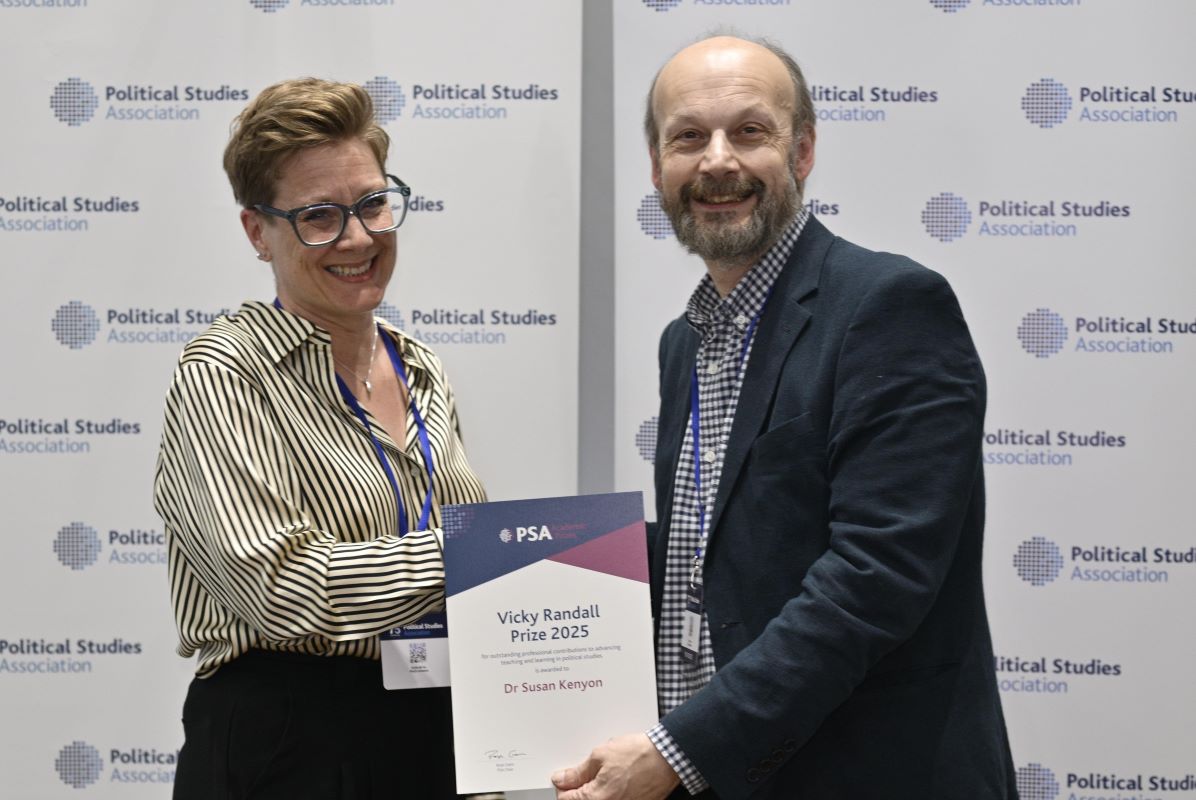Stress – A Collective Workplace Issue

When I was asked to write an article for FE News about Stress Awareness Month, I was initially stumped. What could I add to a body of books, webinars, articles, TV series, memes, research, training programmes, public health stats and the like, the overabundance of which is overwhelming in itself? That working in FE is stressful doesn’t come as a surprise to any of us. Maybe I can carefully pick my way through all the noise.
Part of the problem is that we’ve always set too much store by ‘resources’ in FE (at the expense of strategies). We’re practical people, right? We are fixers, on the whole. As an FE teacher, I was always searching for – or trying to create – that perfect resource that would open up a world of learning possibilities for students. FE is stacked to the gills with stuff and, snaps to us, we’re good at sharing. But when we’re facing complex – some would say ‘wicked’ – problems, in a volatile, uncertain and ambiguous world, there’s no snake oil, there’s no silver bullet, there’s no Holy Grail.
I know of one college – sincerely well-meaning around mental health and wellbeing – who have invested time and money in 61 different stress management ‘fixes’. None are well used because the choice is overwhelming. At worst, each ‘fix’ offered becomes something extra that we have to do (and, even worse, we are blamed for not doing – it’s on us).
So an app isn’t going to make our collective mental health crisis go away, nobody thinks that. We know what the problems are and I promise you that no-one in the world (whatever they may claim) has a workable solution, though lots of people are researching strategic approaches. Making progress involves a balance of responsibilities.
What you can do
Somewhere out there is an intervention that will work for you. However, there’s a caveat; your stress levels are most likely a reasonable response to everything you’re dealing with in work/family/life (see also: state of the world). We are caught up in the grind. I’m not encouraging competitiveness here – that’s part of the problem – but people who maintain a calmer balance in similar circumstances to you have almost certainly caught hold of the intervention(s) that work for them.
If you want anything to be different, you are going to have to go through the blood, sweat and tears of changing a habit or behaviour: ultimately, whatever support you use, it’s down to you. In their book ‘Immunity to Change’ (also two fabulous podcast episodes), Lisa Lahey and Robert Kegan scientifically explore what blocks us from unlocking our own potential; in this case, for mental health equilibrium. They even produce a handy immunity map framework but take heed – read the book or at least the chapter rather than diving right into yet another ‘fixing’ resource.
Small steps can have a big impact. The Government’s recently (and quietly) released Working Lives of Teachers report, although schools based, resonates with FE lives. Teachers feel overworked, not in control of their workloads and subjected to overwhelming admin demands. In FE, it sometimes seems like everything is urgent (it can’t be, FE is not A+E). So the ability to calm the brain by paying attention comes into play. Based on her own neuroscientific research, Amishi Jha evidences the impact of just 12 minutes of meditation a day on your ability to find mental focus, something which easily flies out the window when we’re under stress.
What we can collectively do
I am a big fan of ‘doing the work’ (on ourselves) to do the work. We have some responsibility here; we can’t cede our mental health to the organisations we work for. But of course, that’s only a small part of the picture, if we accept that unhealthy levels of stress are a reasonable response to the conditions of our lives. There are limits to ‘resilience’.
I was initially going to break this article down into ‘what the organisation can do’, ‘what society can do’ but actually, everything we do beyond our own individual commitments is collective. We all know there’s a problem, so how can we address it?
The latest MIT Sloan Management Review article by Thomas Roulet and Kiran Bhatti focuses on ‘wellbeing intelligence’ as a vital part of the management skillset. Sadly, it’s behind a paywall, but they – like me – begin with individual change as a necessary starting point for cultural and systems change in organisations. We have to start somewhere. They write,
“Without the ability to comprehend what affects our own mental health and what challenges we are experiencing, our potential to address others’ issues is limited.”
They recommend regularly checking in on what “concrete changes [managers have made] to their own approaches to work”; again not in a punitive sense and needing to meet a willingness to change patterns, commitments and structures to make concrete change possible. This will take systems change: respecting the importance of wellbeing work by baking it into supervision and appraisal processes.
Managers will then be better-placed to work with colleagues around collective (cultural and systemic) and individual change. The focus for this year’s Stress Awareness Month campaign is that ‘Action Changes Things’. In my (sometimes frustrating) work as a change leader I see that willingness to change everywhere, and encounter fear when people are asked to actually change something. Back to Lahey and Kegan: an action could be collective work around a team, department or organisation’s ‘Immunity to Change’.
There’s a yawning gap in the Stress Awareness Month campaign. In FE, we’re in this state because of the state FE is in – I don’t need to rehearse the reasons here, except to say that the perfectionist culture of Ofsted (‘outstanding’) is under huge public attrition after the tragic and unnecessary death of headteacher Ruth Perry – stress taken to its heartbreaking extreme.
Stress is political. So any ‘stress management’ (or whatever you call it) programme is limited, unless we also collectively tackle the wider issues. And that means campaigning – via FE’s wide-ranging and interconnected grassroots connections, leadership networks, trade unions, infrastructure organisations such as the Education and Training Foundation and the Association of Colleges.
We are all doing something but, critically, we are not coherent. That’s why I’m not listing a whole load of well-intentioned initiatives here. Coherence is at the heart of fighting this new pandemic. If I knew exactly how to do this I would have done it, but this article is another small start. There are leaders of wellbeing out there, I’m one of them (there are lots of predatory snake oil fixers too). Stuart Rimmer stands out, asking for us to “channel all the anger in our sector to push for a systemic change” – but we can’t leave it all on his already stressed shoulders.
I’m part of a Women’s Leadership Network initiative starting small around the related issue of menopause. Stephen Corbett, Karen Johnston and Anita Bezuidenhout call for “[FE] to remember its staff.” I know that FE News is serious about this topic, hence asking me to write this article. There will be many more change leaders and change initiatives that I don’t know about. Let these words be a call to arms for us to find our way to each other, small tributaries leading to a river of change we so desperately need.












Responses